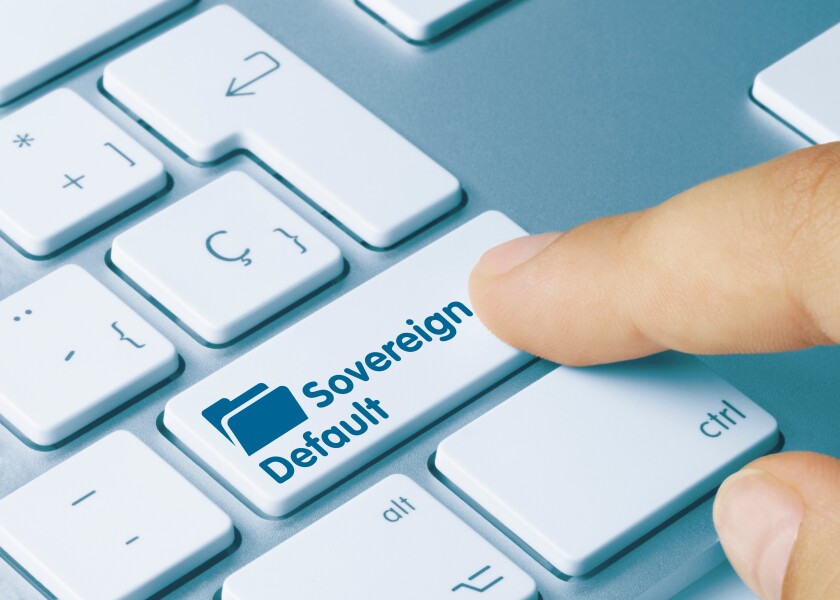Russia has defaulted, according to the weight of western opinion. Investors are tossing up whether they should now make that formal and accelerate repayment on the $40bn of sovereign bonds the country has outstanding. They would be wrong to delay.
Rating agencies, which would usually call a default, are prevented from covering Russian entities by EU sanctions. According to Russia's bond documents, noteholders can declare an event of default if owners of 25% of the outstanding bonds agree one has occurred.
Bondholders are not sure it is in their best interests to do so. Russia has so far shown a strong willingness to pay investors what they are owed and claims on the bonds only become void three years after the payment date. So investors have time to wait and see if the situation in Ukraine improves and sanctions are loosened rather than starting their own fight with Russia for their money now.
But investors would be wrong to assume that the same willingness from Russia to stump up cash will be true in six months or a year, never mind three years. While Russia right now seems determined to maintain a reputation in the debt capital markets that it has destroyed everywhere else, it may want to treat investors well.
That may not be the case in future. There is a risk that its frozen international assets will be seized for reparations to Ukraine, for example, and Russia then sees keeping the bond money as fair game.
Then there are the practicalities of the financial system as it stands. Bondholders say they are concerned that if they accelerate now they do not know how they will get paid even if Russia commits to repaying the $40bn debt stock all at once.
And though Russia is believed to be able to afford it, the country still does not accept that it has defaulted. It says blockages in the international payments system, which it considers a force majeure event, are to blame.
Of course, the argument runs that it was Russia's choice to invade its neighbour and that it should have anticipated sanctions would follow. Nonetheless, taking a narrow look at the question of default and repayment, investors should remember that this is all within the US and EU’s control.
Seeing their own investors and pension pots get a $100m coupon payment is very different to seeing them cash in on a $40bn payday, especially when that money could otherwise be used to further fund the invasion with all of its horrors.
Just as the US Treasury before the end of May allowed a sanctions carve-out for servicing debt, it could allow one for bond repayments.
Some say that having Russia in the financial limbo of default for a longer time helps as it put off investors elsewhere that are not subject to restrictions on financing the country — for example from China. Maybe, but also maybe not. The headline is already out there and Argentina was issuing well before it resolved its defaults. It’s not as though the detail of this particular default and what has caused it isn’t already very public. It’s tough to see how resolving it or not makes much of a difference.
Western holders of Russian debt have largely been shouting for the last three months that the US and EU are hurting their own investors and hurting Ukraine by not allowing funds to keep flowing from Russia to service debts.
This is a genuine moment to divert cash from Russia to Ukraine's allies. It may not last for long.

